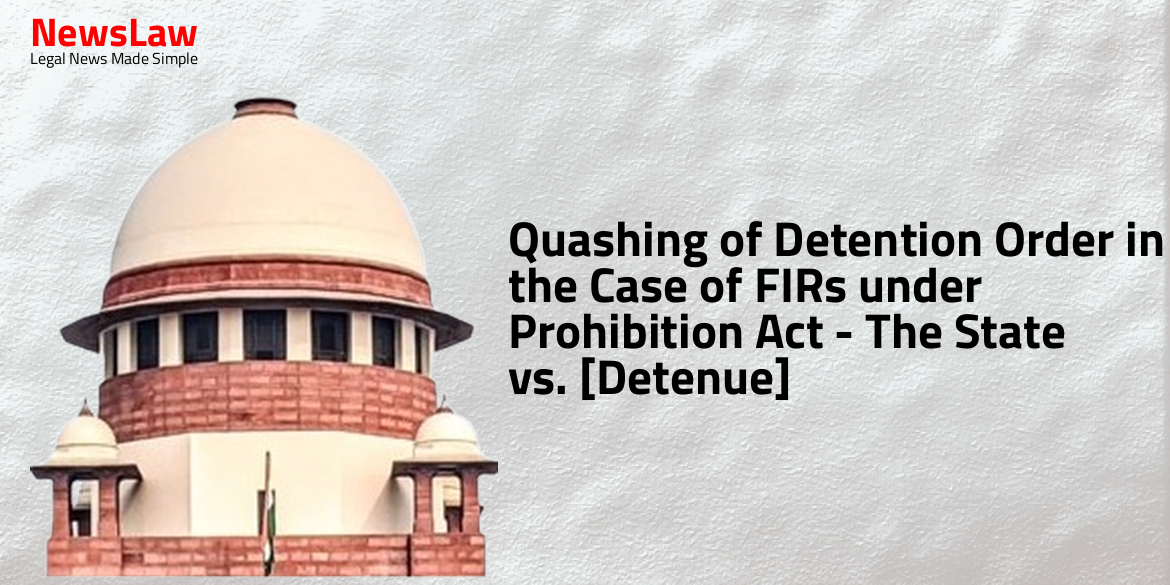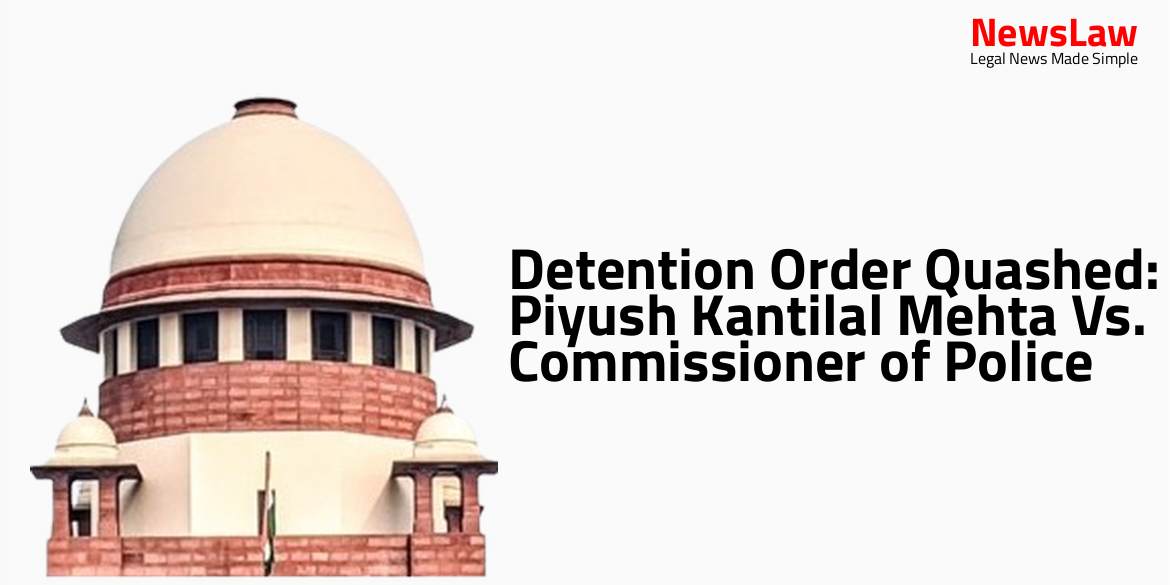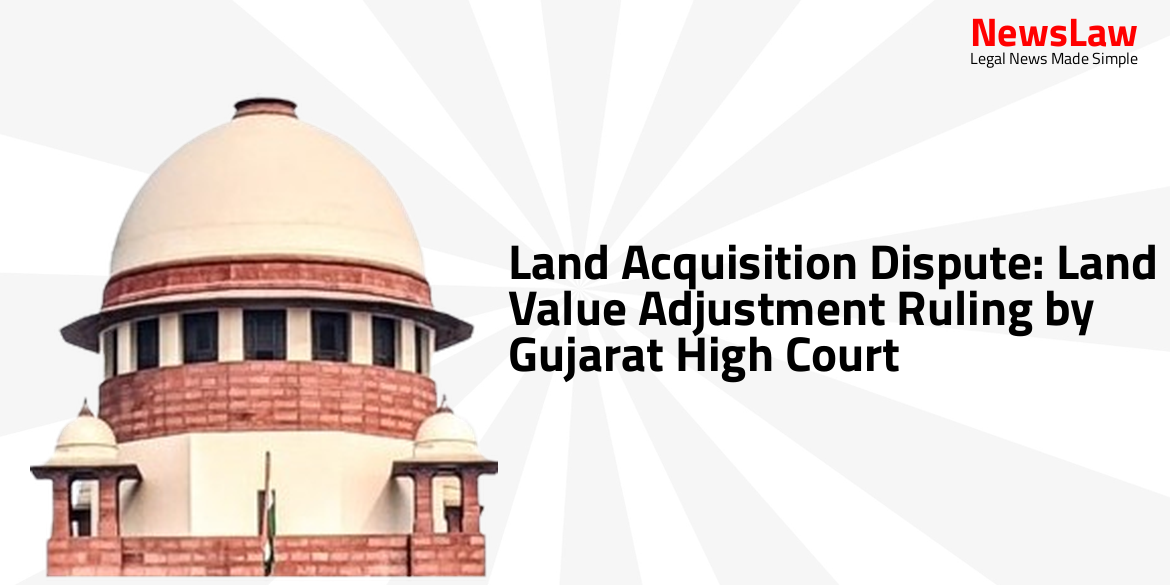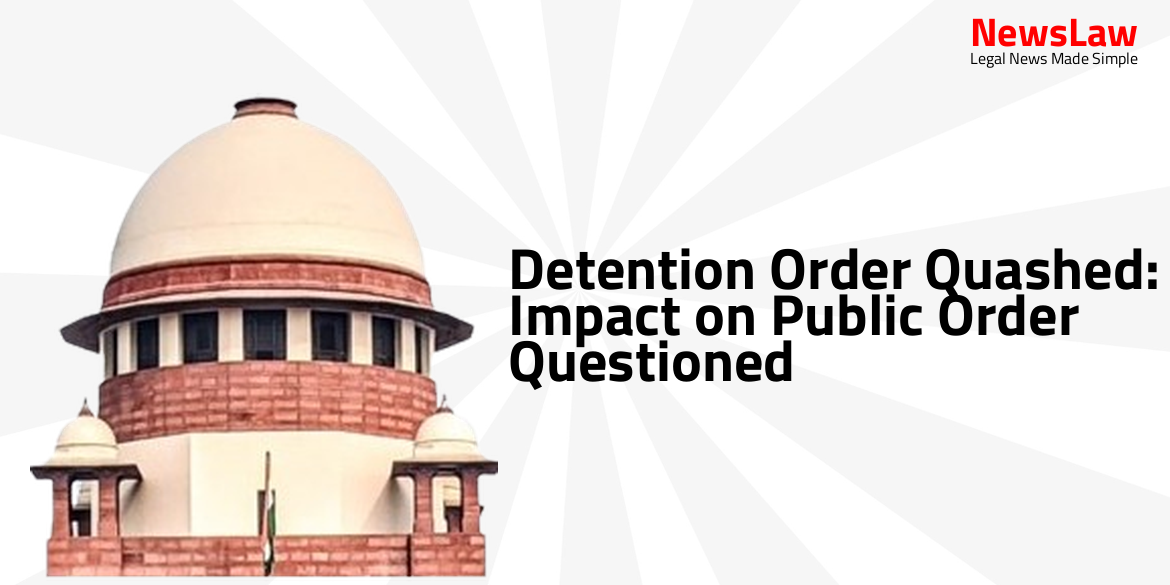In a significant ruling by the Gujarat High Court, the quashing of a detention order based on FIRs under the Prohibition Act has been upheld in the case of The State vs. [Detenue]. This case highlights the importance of considering relevant circumstances and lawful standards in preventive detention matters. The Court’s decision reflects a commitment to protecting individual rights and ensuring the proper application of public order criteria. Stay informed about this crucial legal development!
Arguments
- The impugned order of detention is challenged on the grounds that it solely relies on the registration of six FIRs under specific sections of the Prohibition Act.
- The petitioner’s advocate argues that these allegations do not fit the definition of the Act and do not relate to the maintenance of public order.
- It is emphasized that there is no substantial evidence apart from witness statements and FIRs to link the detenue’s activities to a breach of public order.
- The advocate contends that the detenue’s actions do not pose a threat to the social fabric or the normalcy of routine life based on the criminal cases filed against them.
- The detaining authority has supported the detention order passed and submitted that sufficient materials and evidences were found during the investigation.
- Materials indicating the detenue’s habit of indulging in activities as defined under Section 2(b) of the Act were supplied to the detenue.
- The detaining authority’s decision was based on the facts of the case and merits upholding by the Court.
Analysis
- The case demonstrates a lack of consideration of relevant circumstances by the detaining authority.
- Seeking refuge under preventive detention law is not appropriate in this case.
- The FIRs against the detenu could be addressed through ordinary criminal laws.
- The court has a history of quashing detention orders under the Telangana Act for improper application of public order standards and reliance on outdated material.
- The state has alternative remedies such as seeking cancellation of bail or appealing to a higher court if the detenu is indeed a threat to society.
- The court found that the subjective satisfaction of the detaining authority was not legal or valid, as the alleged offenses in the FIRs did not impact public order and could be handled under other penal laws.
- The Courts have established that not every act of assault or injury to specific persons leads to public disorder, as some disturbances are dealt with under ordinary criminal law.
- The distinction between disturbance to ‘law and order’ and disturbance to ‘public order’ has been clearly settled by the Apex Court in various cases.
- The Apex Court has emphasized that preventive detention powers are exceptional and draconian, and should not be used merely based on a person’s implication in a criminal proceeding.
- It has been highlighted that ‘public order’ must lead to ‘public disorder’ and every breach of peace does not necessarily result in public disorder.
- The detaining authorities need to have concrete and factual basis for apprehending disturbance to public order, especially when there have been no reports of unrest.
- The Courts have pointed out instances where detention orders under preventive detention laws have been set aside due to a callous exercise of power by the detaining authorities.
- The constitutional safeguards against abuse of preventive detention powers have been emphasized, ensuring strict adherence to lawful standards.
- A key distinction has been made between ‘law and order’, ‘public order’, and ‘security of State’, with different levels of impact and implications for each.
- The role of the District Magistrate in maintaining public order and the use of detention powers under specific circumstances have been clarified in different judgments.
- Registration of FIRs alone does not breach maintenance of public order
- There must be a nexus between the FIRs and the breach of public order
- Simply registering FIRs cannot be grounds for restricting the authority to do so
Decision
- The present petition is allowed and the impugned order of detention dated 10.01.2024 is quashed and set aside
- The detenue is ordered to be set at liberty forthwith, if not required in any other case
- The Rule is made absolute to the extent mentioned above
- Direct service is permitted
Case Title: UMESH @ CHINTU VINODBHAI THAKOR THRO SWETA UMESHKUMAR THAKOR Vs. POLICE COMMISSIONER
Case Number: R/SCA/1247/2024



